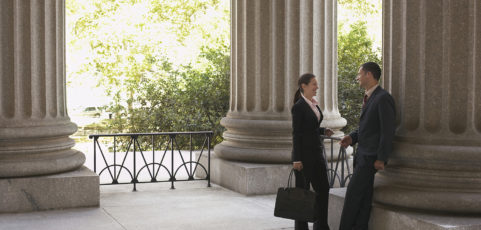Amici curiae often walk a tightrope between offering argument that is supplemental, but also sufficiently within the issues framed by the parties. That tightrope may be even narrower after the Supreme Court issued its decision in United States v. Sineneng-Smith, 140 S.Ct. 1575 (2020), which vacated an order by the Ninth Circuit for violating the party presentation rule.
Under the “party presentation rule,” federal courts are discouraged from considering legal arguments and issues not raised by the parties. Federal courts “rely on the parties to frame the issues for decision and assign to courts the role of neutral arbiter of matters the parties present.” Greenlaw v. United States, 554 U.S. 237, 243 (2008).



